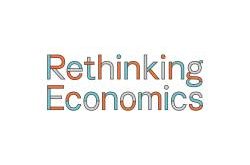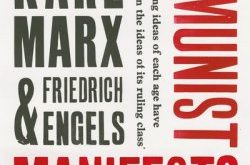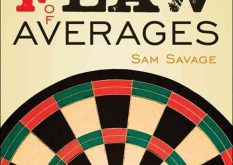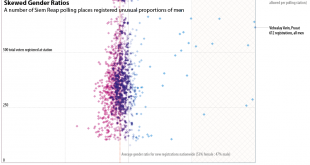The case for a new economics When the great crash hit a decade ago, the public realised that the economics profession was clueless … After 10 years in the shadow of the crisis, the profession’s more open minds have recognised there is serious re-thinking to be done … But the truth is that most of the “reforms” have been about adding modules to the basic template, leaving the core of the old discipline essentially intact. My view is that this is...
Read More »IPA’s weekly links
Guest post by Jeff Mosenkis of Innovations for Poverty Action. The effective altruism careers blog 80,000 Hours argues that support roles within an organization, like in operations or assisting, can have big overall impact by multiplying others’ effectiveness. In that vein, IPA’s hiring a global operations director. We’re also hiring what (IMHO) might be one of the most important and complex jobs in the org, Kenya Country Office Director. It involves managing a staff of 500 across several...
Read More »The tractability hoax in modern economics
The tractability hoax in modern economics While the paternity of the theoretical apparatus underlying the new neoclassical synthesis in macro is contested, there is wide agreement that the methodological framework was largely architected by Robert Lucas … Bringing a representative agent meant foregoing the possibility to tackle inequality, redistribution and justice concerns. Was it deliberate? How much does this choice owe to tractability? What...
Read More »Marx predicted the present crisis — and points the way out
Marx predicted the present crisis — and points the way out Marx and Engels based their manifesto on a touchingly simple answer: authentic human happiness and the genuine freedom that must accompany it. For them, these are the only things that truly matter. Their manifesto does not rely on strict Germanic invocations of duty, or appeals to historic responsibilities to inspire us to act. It does not moralise, or point its finger. Marx and Engels attempted to...
Read More »Sometimes we do not know because we cannot know
Sometimes we do not know because we cannot know Some time ago, Bank of England’s Andrew G Haldane and Benjamin Nelson presented a paper with the title Tails of the unexpected. The main message of the paper was that we should not let us be fooled by randomness: The normal distribution provides a beguilingly simple description of the world. Outcomes lie symmetrically around the mean, with a probability that steadily decays. It is well-known that repeated...
Read More »DSGE models — overconfident macroeconomic story-telling
DSGE models — overconfident macroeconomic story-telling A recent paper by Christiano, Eichenbaum and Trabandt (C.E.T.) on Dynamic Stochastic General Equilibrium Models (DSGEs) has generated quite a reaction in the blogosphere … Bradford Delong points out that new Keynesian models were constructed to show that old Keynesian and old Monetarist policy conclusions were relatively robust, and not blown out of the water by rational expectations … The DSGE...
Read More »Kommenterar kring vårbudgeten
Efter att ha följt nationalekonomiprofessorn John Hasslers analys av vårbudgeten på SvT Forum tidigare idag, slog det mig att jag nog hört det här förut … [embedded content] Advertisements
Read More »MMT for Dummiez
[embedded content] Advertisements
Read More »Modeling economic risk
Model builders face a constant temptation to make things more complicated than necessary because this makes them appear more capable than they really are. Remember that a model is not the truth. It is a lie to help you get your point across. And in the case of modeling economic risk, your model is a lie about others, who are probably lying themselves. And what’s worse than a simple lie? A complicated lie. Advertisements...
Read More »IPA’s weekly links
Guest post by Jeff Mosenkis of Innovations for Poverty Action. Detecting soldiers registering as new voters in Cambodia from the gender distribution. Take a few minutes to read the latest newsletter from the CSWEP, the AEA’s Committee on the Status of Women in the Economics Profession. In particular, the opening harrowing account from economist and law professor Jennifer Bennett Shinall on being sexually assaulted by a more senior colleague on an airplane, and on page 5, the anonymous...
Read More » Heterodox
Heterodox







